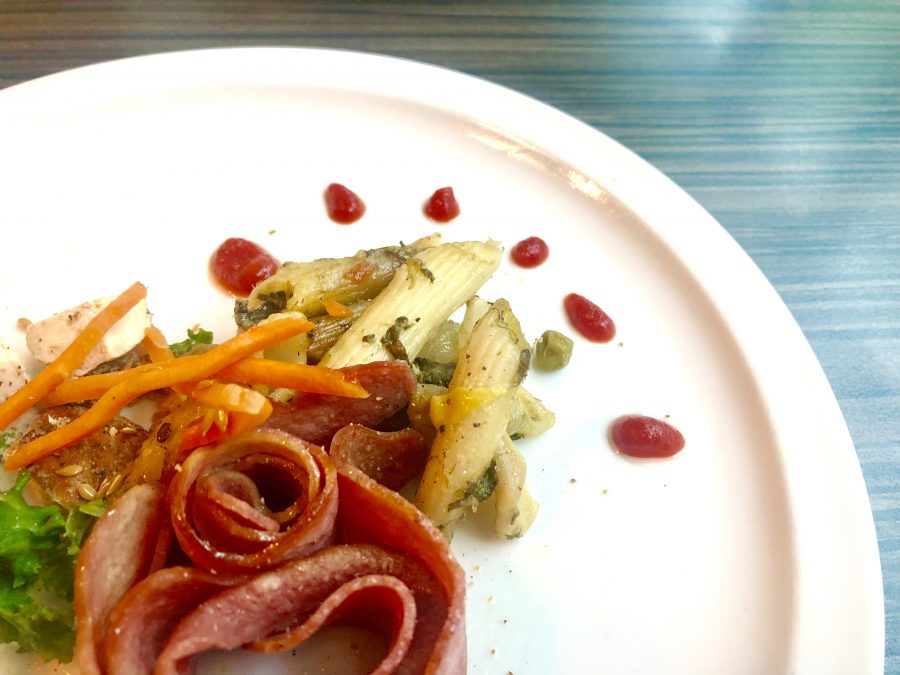Last academic year, the Courtesy Meals Program — which provides 75 Dining Dollars to students unable to afford their next meal, no questions asked — was used by 30 to 40 students per semester, according to Senior Vice President of Student Affairs Marc Wais.
This year, that number has skyrocketed to 1,933 students across 11 New York campus locations.
The CMP is meant to provide short-term aid to those facing immediate financial stress. It began in 2016, a product of the Food Insecurity Working Group, which consisted of students, faculty and administrators who hoped to solve student hunger on campus. In fall 2018, a website for the program was added, Resident Assistants were informed of the program and Welcome Week leaders were encouraged to tell incoming first-years about it.
Over the course of that semester, individual users reached a new high of 1,165 students. Another 768 students used the program for the first time during this year’s J-Term and spring semester.
Newly elected chairperson of student government and Gallatin junior Jakiyah Bradley, who is a Senator at-Large for students experiencing food insecurity, told WSN that the numbers attest to the program’s success.
“I think the general takeaway is that the program works,” Bradley said. “In 2016 [the Food Insecurity Working Group] identified the problem and now it shows that the work manifested into something students appreciate, as you can see by the numbers.”
Bradley attributes the large increase in usage to student government and others promoting it.
CAS sophomore Malak Enayetallah used the program after the family she usually babysits for went on vacation for three weeks, leaving her without a source of income. Although she had heard about the program through the Wellness Exchange, it was her roommate — who had used the program before — who convinced her to try it.
Enayetallah said she did not feel that it was widely publicized.
“I find it surprising that it wasn’t publicized,” Enayetallah said. “Even now, I don’t think it really is publicized; it’s mostly by word of mouth. That’s how I found out about it and that’s how I’ve been telling other people about it.”
Wais asked administrators in each school to send emails informing students of the program, but Enayetallah said that to effectively reach students, the administration should consider using social media. Still, she found the program to be helpful and easy to use at a time when she needed it.
“It was really straightforward,” Enayetallah said. “I expected some sort of requirement, but there isn’t. You just have to be an NYU student [and] the fact that it isn’t just a one-time thing really saved me.”
At locations like the Kimmel Center for University Life and the Academic Resource Center that provide the courtesy meals, a student simply has to ask to be given the 75 Dining Dollars. There is no limit on uses, although after two times the administration may try to connect students with other resources.
“After second use, we hope, and strongly encourage students to engage with Wellness and/or Financial Education so that the university can learn more about their situation and provide assistance going forward,” Wais wrote in an email to WSN.
Wais went on to say that the university has systems in place to work with those facing long-term food insecurity. In the past, he has cited connecting students with government programs as one such solution.
Bradley said that despite the program’s success, there are still improvements to be made. While working at the Center for Multicultural Education and Programs, which is one location for the CMP, she said some students drop in after trying other locations where the staff authorized to dispense funds were unavailable.
Enayetallah hasn’t had problems using the program. Initially surprised that NYU would provide students with Dining Dollars, no questions asked, Enayetallah said she now sees the program that has been used almost 3,000 times this year as a necessity.
“It shouldn’t be that surprising that they offer it, because why wouldn’t they help students stay afloat?” Enayetallah said. “Obviously the university’s not there to take care of you, but at the very least, you should be able to afford to eat.”
A version of this article appeared in the Monday, May 6, 2019, print edition. Email Victor Porcelli at [email protected].


























































































































































